Episode 395: Petals and Alpacas at Gholson Gardens in Walla Walla, Washington, plus State Focus: Idaho
April 3rd, 2019
Podcast: Play in new window | Download
Subscribe: Apple Podcasts | Podcast Index | RSS | More
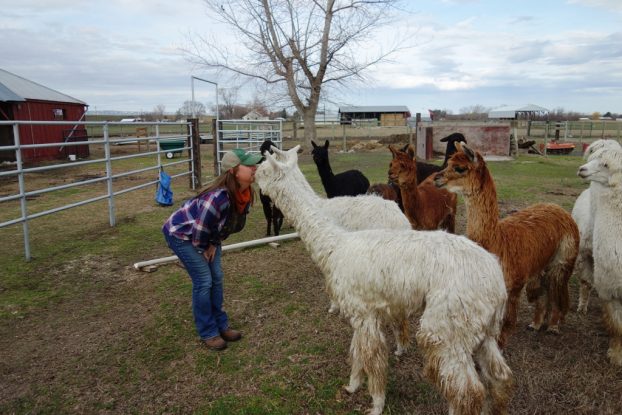
Last weekend I spent 2 days in Walla Walla, Washington, located in the Southeast corner of the state, where I joined the Washington-Grown Flowers promotion team at the Washington State Farmers’ Market Association conference.
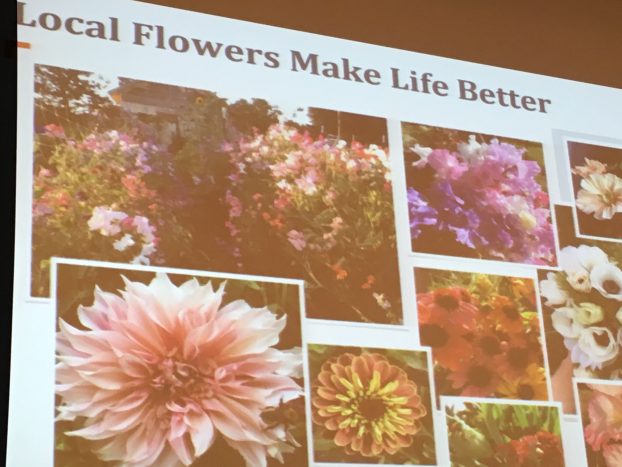
The Flower Promotion effort was funded by a USDA Specialty Crop Block Grant and is being jointly administered by the Washington State Dept. of Agriculture’s Regional Markets Program and the Washington State Farm Bureau. They invited me to co-present on my Slow Flowers Insights, as well as about local flower promotion strategies for Farmers’ Market managers — what a great opportunity to bring local and seasonal flowers to the forefront of the farmers’ market world!
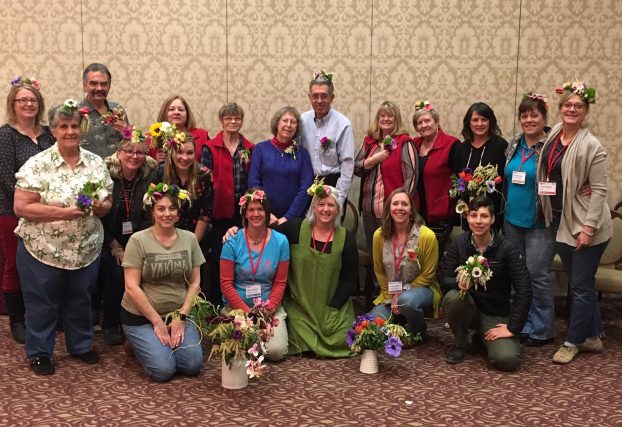
Thanks to Laura Ridenour and Laura Raymond of WSDA and to Suzanne Carson of the Farm Bureau for including me in this program, and to Emily Asmus of Welcome Table Farm, my co-presenter, who was super inspiring as a local flower farmer with great advice about seasonality and best practices for market managers who may not be as familiar with floral crops as they are with food crops.
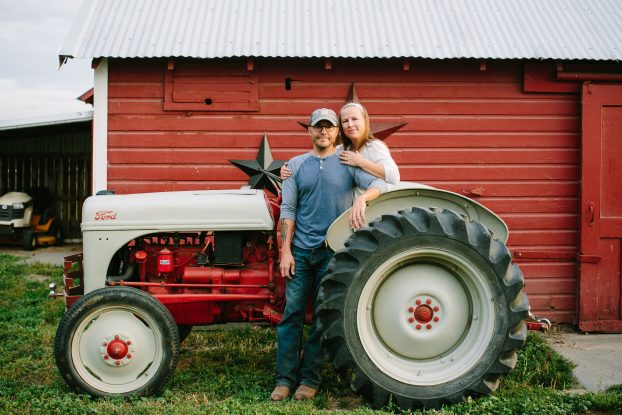
While in Walla Walla, I also had time to visit Gholson Gardens, owned by Slow Flowers member Elaine Vandiver and her husband Mike Vandiver.
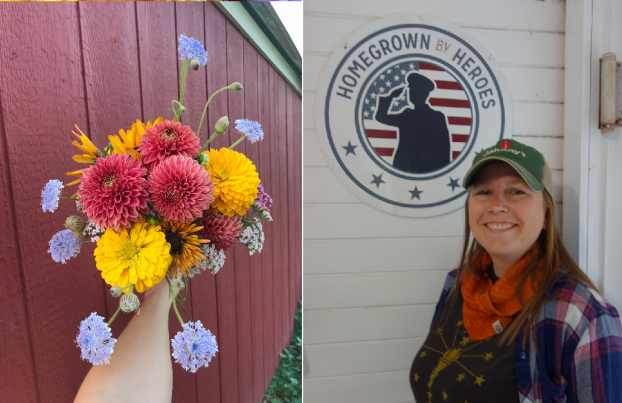
Gholson Gardens is a small, 10-acre farm located in southeastern Washington state, in the quintessential rural community of Walla Walla. Mike and Elaine are both U.S. Army veterans turned first generation farmers.
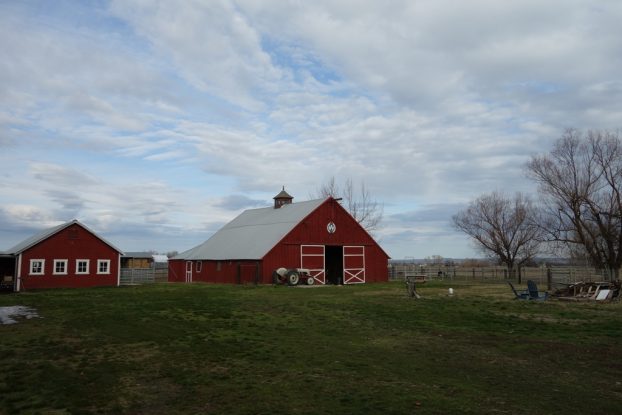
As they share on their web site, “with no previous agricultural experience, we purchased the farm in May 2014 as a way to start anew after learning a traditional family wasn’t in the cards for us. We didn’t have any immediate plans for the farm, which was mostly in pasture. We simply hoped to enjoy the beautiful red barn, sweeping views of the Blue Mountains from the farmhouse porch, and maybe get some critters to complete the country scene.”
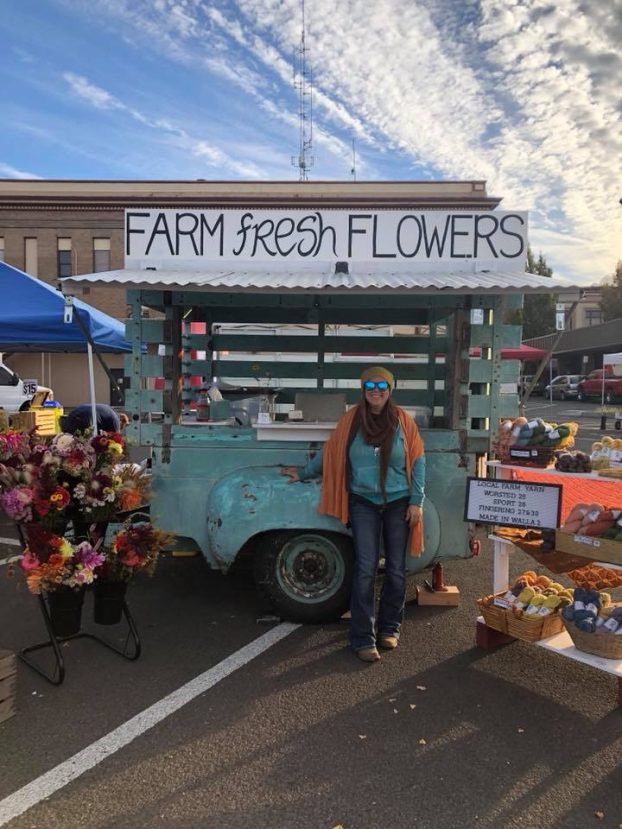
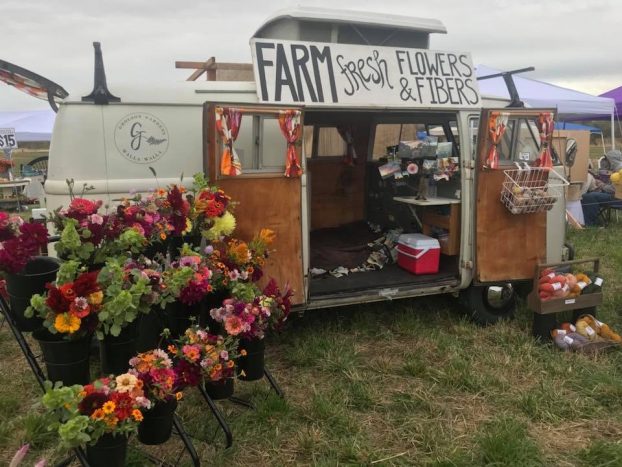
The story unfolds in my interview recorded in the farmhouse’s dining room kitchen where Elaine and I sat comfortably while Mike kept their two Greyhound rescue dogs entertained outside.
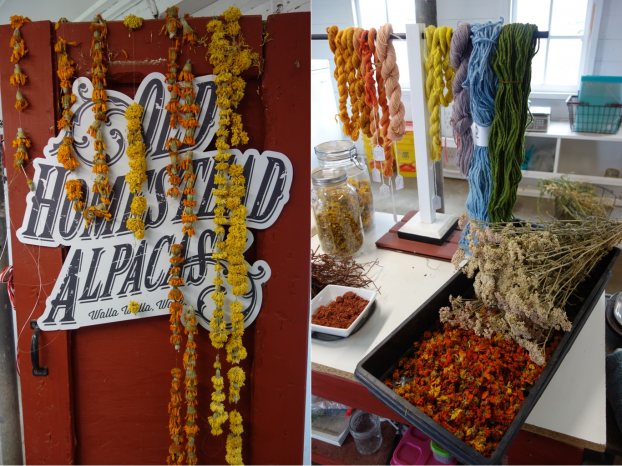
This is a very personal, inspiring story for anyone who views growing cut flowers as a new way of life, perhaps as a catalyst for all sorts of change.
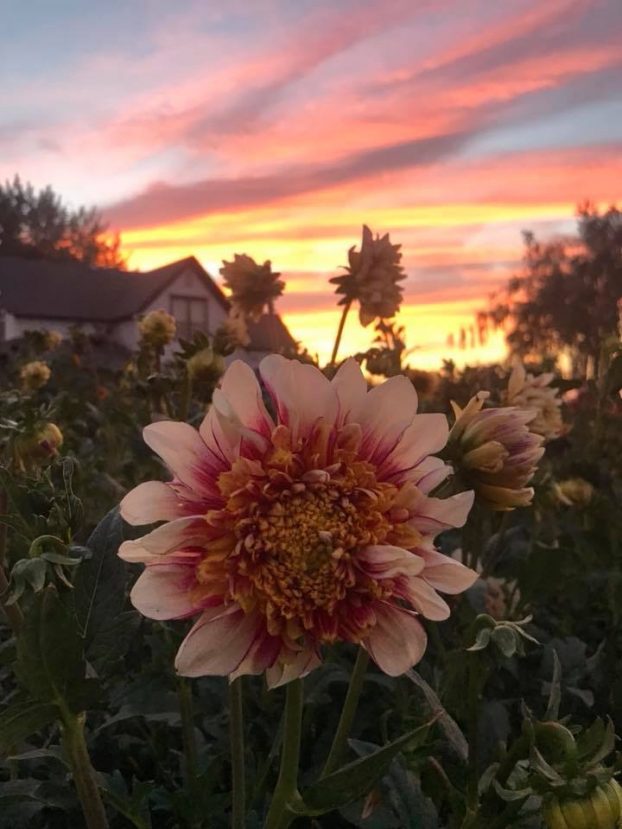
For Elaine and Mike, growing flowers is the latest chapter of their agricultural lifestyle, one that began with a llama and too many adorable alpacas for me to accurately count, continued to a flower and herb garden to grow plants that produce natural dyes for the wool, skeins and garments made with the alpaca fiber, and expanded just over a year ago to become a full-fledge cut flower farm.
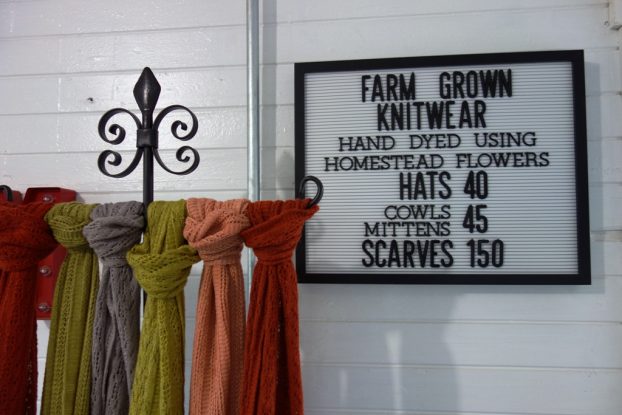
Elaine’s narrative on Gholson Garden’s web site continues: “Knowing that the fiber takes 2 years to bring to market [1 year for the alpacas to grow it and the better part of another year spent professionally milling, knitting and then hand dyeing], we quickly realized that growing cut flowers could be a great way to diversify the farm. And that’s what we did! We sowed our first seeds in late February 2018 and began field production in early May, selling them at the local farmer’s market from June through September. We sell primarily at the Walla Walla Downtown Farmers Market and to a few local florists, but are also offering a ‘bouquet CSA’ starting in Spring 2019. You can find Gholson Gardens at the downtown Walla Walla farmers market in 2019 from May through October!”

I’m so pleased to bring you this interview for many reasons, including how encouraging it is.
Find and Follow Gholson Gardens:

My time in Walla Walla allowed me to connect with so many fabulous people in the farmers’ market community, people who are excited to bring the story of locally grown flowers to their customers across the state. I will share more in the coming months about the exciting Washington-Grown Flowers project, as I believe it can be a great template for anyone to bring to the department of agriculture and farm bureau agencies in their state. As I said, more to come, soon!
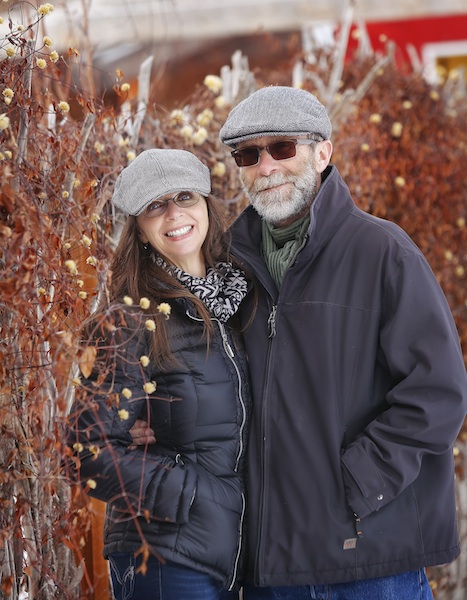
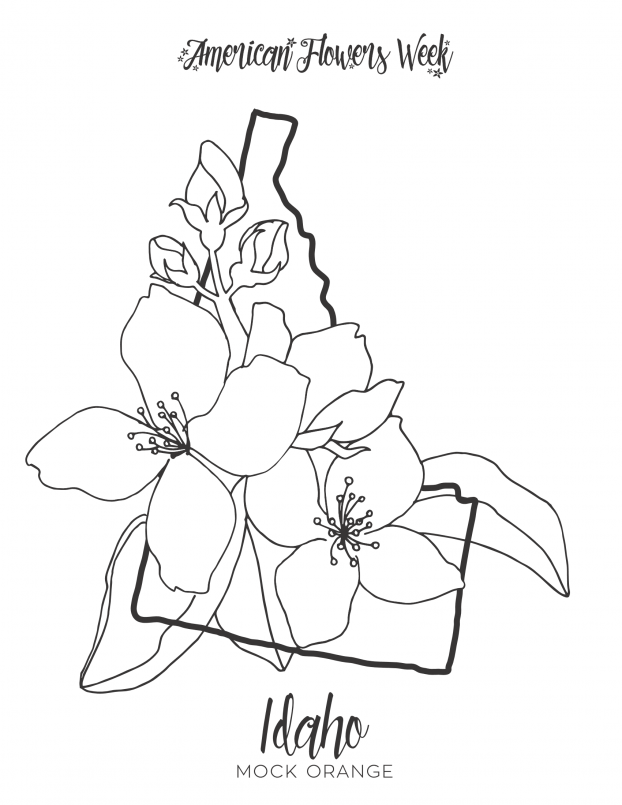
Our #fiftystatesofslowflowers series continues today with a stop in Idaho and Deadhead Cut Flowers’ Jeriann Sabin and Ralph Thurston. The couple are past guest of this podcast and you can hear our 2016 interview here, recorded on the occasion of the publication of Deadhead: The Bindweed Way to Grow Flowers.
A lot has taken place since then, including the sale of Bindweed Flower Farm to their nephew. Last year, Ralph authored All Pollen, No Petal: Behind the Flower Farming Dream, and we talk a little about its message in today’s conversation.
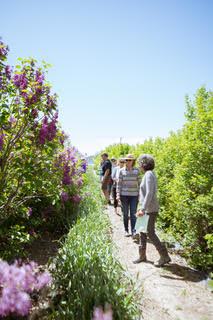
Coming up on May 2nd & 3rd, “INSIDE FLOWER FARMING—the real deal,” the Deadhead Cutflowers/Bindweed Farm Flower Growing School, returning in the Spring of 2019 with a two-day session for beginning and intermediate growers.
A major focus will be to make flower farming transparent by showing the actual tax returns of the farm, as well as costs and income so you can better see where you stand and what is possible.
Killing Frost’s Jamie Rodgers will join Ralph and Jeriann for the session to provide his and Carly Jenkins’ success with organic pest and disease control.
If you’ve been dreaming of starting your own cut-flower farm or are ready to make the jump from hobby/master gardener to cut-flower farmer, we are here to help you. Class size will be limited to ten individuals in order to give close attention to each farmer.

How was this for a bonus segment! Amazing — what a great chance to speak with Elaine Vandiver at the beginning of her flower farming journey, and to hear from Jeriann Sabin and Ralph Thurston, who are looking at some of their journey in the rear view mirror while sharing their knowledge and experience, stories and art with the rest of us.
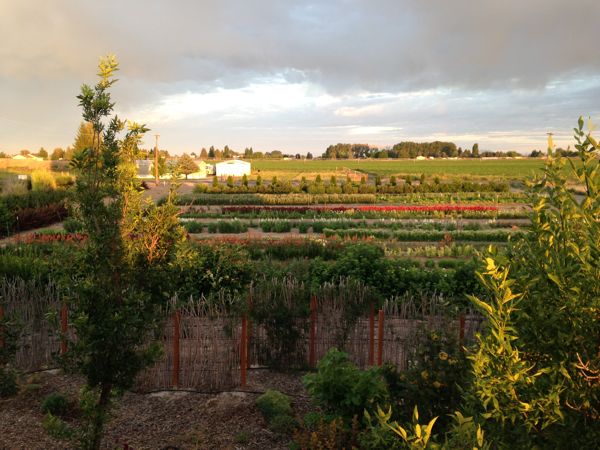
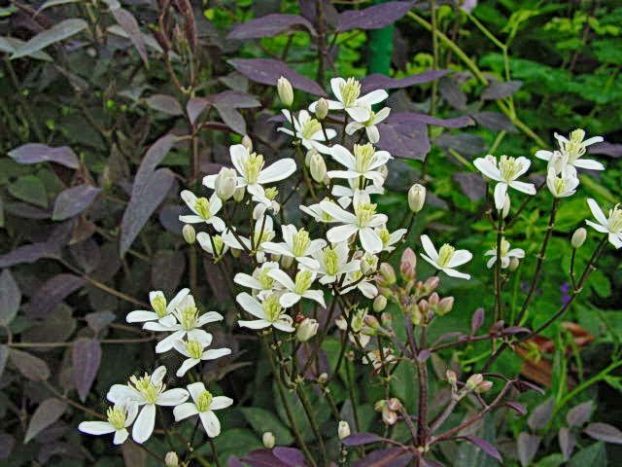
Thank you so much for joining me on this Slow Flowers journey as I seek new and inspiring voices, people with passion, heart, commitment and expertise to share with you. I hope today’s episode gave you at least one inspiring insight or tip to apply to your floral enterprise. What you gain will be multiplied as you pay it forward and help someone else.
Truly, we have a vital and vibrant community of flower farmers and floral designers who together define the Slow Flowers Movement. As our cause gains more supporters and more passionate participants who believe in the importance of the American cut flower industry, the momentum is contagious.
I know you feel it, too. I value your support and invite you to show your thanks and with a donation to support my ongoing advocacy, education and outreach activities. You can find the donate button in the column to the right.
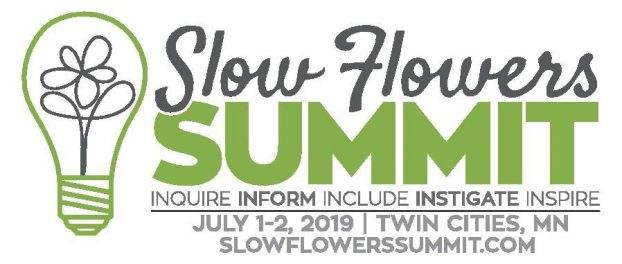
The Slow Flowers Summit is coming up soon — on July 1 & 2nd in St. Paul, Minnesota. More than half of the registration slots have been grabbed, so don’t miss out on this opportunity to join with Slow Flowers thinkers and doers in person.
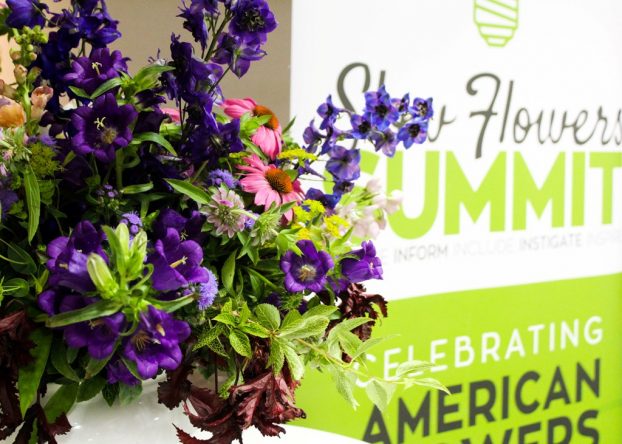
One of our past year’s speakers dubbed the Summit a “floral mind meld,” and I love that concept. Come and be a part of the incredible and uplifting experience! You can make your way to slowflowerssummit.com to learn all about the many opportunities to join us — from flower farm tours and dinner on a flower farm to business and branding presentations to interactive and inspiring design sessions . . . all designed to serve you! Subscribe to Summit news and updates at slowflowerssummit.com.
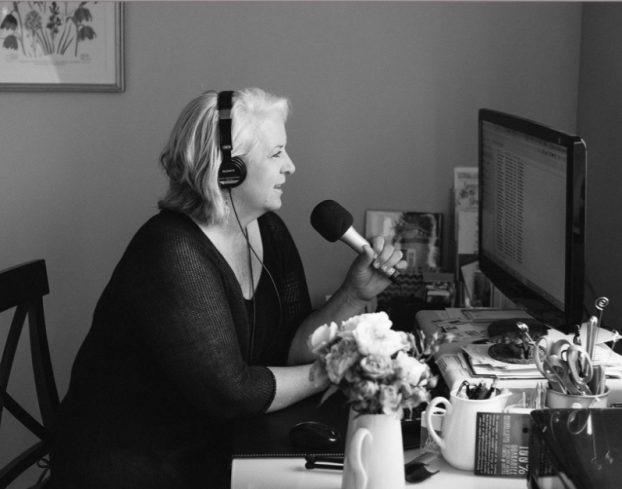
The Slow Flowers Podcast has been downloaded more than 433,000 times by listeners like you. Thank you for listening, commenting and sharing – it means so much. Thank you all!
THANK YOU TO OUR SPONSORS!
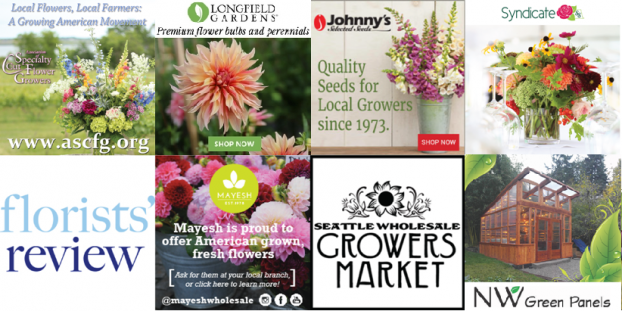
Florists’ Review magazine. I’m delighted to serve as Contributing Editor for Slow Flowers Journal, found in the pages of Florists’ Review. It’s the leading trade magazine in the floral industry and the only independent periodical for the retail, wholesale and supplier market. Take advantage of the special subscription offer for members of the Slow Flowers Community
Association of Specialty Cut Flower Growers. Formed in 1988, ASCFG was created to educate, unite, and support commercial cut flower growers. It mission is to help growers produce high-quality floral material, and to foster and promote the local availability of that product. Learn more at ascfg.org.
Johnny’s Selected Seeds, an employee-owned company that provides our industry the best flower, herb and vegetable seeds — supplied to farms large and small and even backyard cutting gardens like mine. Check them out at johnnysseeds.com.
Longfield Gardens provides home gardeners with high quality flower bulbs and perennials. Their online store offers plants for every region and every season, from tulips and daffodils to dahlias, caladiums and amaryllis. Visit them at longfield-gardens.com.
I’m Debra Prinzing, host and producer of the Slow Flowers Podcast.
Next week, you’re invited to join me in putting more American grown flowers on the table, one vase at a time. And If you like what you hear, please consider logging onto iTunes and posting a listener review.
The content and opinions expressed here are either mine alone or those of my guests alone, independent of any podcast sponsor or other person, company or organization.
The Slow Flowers Podcast is engineered and edited by Andrew Brenlan. Learn more about his work at soundbodymovement.com.
Music Credits:
Betty Dear; Gaena; Perspirationby Blue Dot Sessionshttp://www.sessions.bluehttps://creativecommons.org/licenses/by-nc/4.0/
Lovely by Tryad http://tryad.bandcamp.com/album/instrumentals
http://creativecommons.org/licenses/by-sa/3.0/
In The Field; Acoustic Shuffle
Music from:
audionautix.com









April 3rd, 2019 at 12:49 pm
[…] by a USDA Specialty Crop Block Grant and is being jointly administered by the Washington […]Episode 395: Petals and Alpacas at Gholson Gardens in Walla Walla, Washington, plus State Focus: Ida… this post has been replublished from the original […]